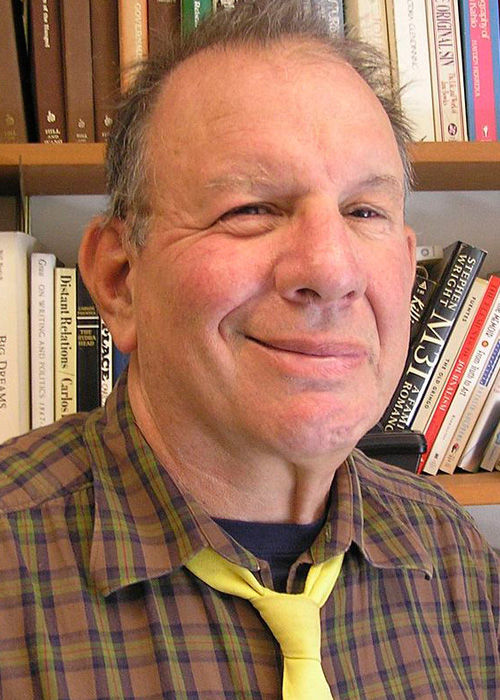John Sugg, 62, had a ringside seat for some of the biggest blazes that swept across Santa Rosa this past October. The President of the Sonoma Patient Group, which is the second oldest medical cannabis dispensary in northern California, Sugg lives west of 101 near Cleveland Avenue.
The fires didn’t menace his dispensary, but other structures in the vicinity weren’t as lucky. The Kmart on Cleveland burned, as did the nearby Fountain Grove Inn and a gun shop in the same area.
“It was a war zone,” Sugg told me. “The sky was in flames. I saw Coffey Park burning and I heard transformers exploding. The streets were in gridlock. People were trying to escape by car and streets were blocked.”
Still, Sugg’s dispensary, which is located on Cleveland Avenue close to Guerneville Road, closed down for four days. The whole building in which the Sonoma Patient Group is housed had no electricity. Patients showed up and waited in the parking lot, hoping that the doors might open and that they’d be able to buy their much-needed medicine.
When the Sonoma Patient Group did finally reopen with restored electricity, business was brisk. It continued that way for seven days.
Sugg welcomed old customers and talked about his own history in and around the cannabis industry as well as the impact of the big fires on the 2017 crop. He said that he had a few plants in his own backyard and that he would rinse them off to remove the smell of smoke.
“It has always been a struggle to be in the cannabis world,” Sugg said. “Patients love us, but a lot of other people don’t. For a long time, the police attitude was terrible, though they’re now learning.”
Sugg has been growing and smoking marijuana for much of his adult life. By his own estimate, he has spent $500,000 on marijuana and marijuana products. Fortunately, he usually had well-paying jobs in the tech industry, including a long run at Microsoft, which didn’t require drug testing for its employees. If it had, Sugg would have failed.
He smoked almost every night when he came home from work. It helped him decompress and relax.
Before he opened his dispensary in 2007, he was for many years a marijuana activist who demonstrated in Sacramento and called for decriminalization and legalization. On the steps of the state capitol, he met some of the key players in the cannabis scene, including Lynette Shaw, who opened the first dispensary in the U.S. in 1997, and Dennis Hunter, once a grower and dealer who now runs Cannacraft, a multi-million-dollar-a year business in Santa Rosa.
Sugg and Hunter are friends and business associates. The Sonoma Patient Group sells Hunter’s cannabis products.
“We’re one big destination for Dennis’s tinctures, oils and creams,” Sugg said. “We love him and he loves us.”
Still, for a while the two pro-cannabis buddies went in opposite directions.
“When I worked at Aiko, a dispensary that no longer exists, the DEA raided us and served me a subpoena,” Sugg said. “Agents were looking for Hunter. He was a wanted man.”
Sugg was never called to testify before a grand jury. Hunter was apprehended, tried, found guilty and sentenced to prison.
Sugg remained in the marijuana industry, though he had his share of ups and downs, including a falling out with some of his business partners, plus “hassles” with the city. Through it all, he said, he has aimed to “be honest and straightforward.”
His longtime employees, who echo his motto, “We don’t ration compassion,” have no less integrity than he.
Nicole Williams, 36, buys all of the cannabis for the dispensary. When growers bring samples, she looks at five things: the appearance; the aroma; the taste; the purity of the product, and the price.
Williams doesn’t buy contaminated cannabis. She expects that much of this year’s harvest will be unacceptable for dispensary sale because of smoke from the fires, though she also predicted that it would reach the black market.
“Outdoor growers have taken a hit,” she said. “Indoor growers less so. Some pot sat in smoke in backyards for a week. That’s like standing next to a BBQ for days. Your clothes, hair and skin smell of charcoal.“
Williams added, “A lot of marijuana that looks beautiful is loaded with dangerous herbicides and pesticides.”
Two days after the October fires were nearly all extinguished, Sugg provided free pizza and salad to his customers. Like Hunter, he also gave away cannabis products to those in need.
At the height of the fire, Hunter provided free space to the Red Cross for its emergency operations.
One woman who came to Sugg’s dispensary for the free lunch spoke only on condition of anonymity. “Where I live in west county, it’s the Mecca of cannabis cultivation,” she said. “But officials still treat us like criminals. I’m moving to Monterey.”
Small-scale pot growers were not the only ones to be hard hit by the fires. They also destroyed plants at large farms, like SPARC, though Erich Pearson who is SPARC’s main spokesman didn’t plead for sympathy.
“We’re in rebuild mode,” he texted in a brief reply to an email asking about the status of his farm on Highway 12. Unlike the overwhelming majority of Sonoma County growers, Pearson has played by the rules. Indeed, he has applied for all the necessary permits, though he also grumbles about the world of regulated, taxed and legalized marijuana.
“The government is overregulating the industry,” he said on the day I visited his farm. “What we have is a new form of Prohibition.” He added, “I hope that officials will relax their rules, though my guess is that taxes will remain high and that the black market will continue. Regulators are screwing up because they don’t understand the industry.”
Like Pearson, other farmers who their lost crops are replanting and rebounding. Still, they probably will not fare well with county and state rules, regulations, taxes and fees. Indeed, as Pearson, Sugg and Hunter know, the law can be a far harsher foe than any wildfire.
Jonah Raskin, a professor emeritus at Sonoma State University, is the author of Marijuana: Dispatches from an American War, published in French as well as English, and shares story credit for the feature length pot film Homegrown.









